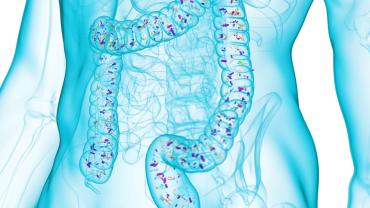
Irritable bowel syndrome (IBS) can be debilitating, causing cramping, abdominal pain, bloating, gas, diarrhea, and constipation. IBS can affect one’s work, sleep, and relationships.
Most treatments for IBS consist of medications that are often ineffective and can have numerous side effects.
Various factors have been associated with IBS, including genetic susceptibility, infections, small bowel intestinal overgrowth, deficiencies in tight junction proteins, abnormalities in bile acid metabolism, changes in gastrointestinal (GI) motility, and visceral hypersensitivity. Other determinants include dysregulated central and enteric nervous system activity, as well as psychosocial factors.
According to a recent review published in Nutrients, researchers investigated the outcome-specific efficacy of different probiotic strains or combinations of strains in adults with IBS.
The research team searched the literature up to June 2023 and included all randomized controlled trials (RCTs) evaluating probiotics’ efficacy in IBS. This review comprised 9,253 participants from 81 RCTs.
The results indicated that four probiotic strains and five mixtures were significantly superior to placebo in improving the IBS Symptom Severity Scale, with Lactobacillus acidophilus DDS-1 ranked first. A mixture of five probiotics ranked first in improving the IBS-Quality of Life. Bacillus coagulans MTCC 5856 and Bacillus coagulans Unique IS2 were among the most effective probiotics for improving abdominal pain. Three probiotic strains and two mixtures were effective in alleviating abdominal bloating. Four probiotic strains and a mixture were significantly superior to placebo in reducing bowel movement frequency in diarrhea-predominant IBS (IBS-D), with Bacillus coagulans MTCC 5856 and Saccharomyces cerevisiae CNCM I-3856 among the most effective for improving the Bristol stool form scale of IBS-D. This study provided the first ranking of outcome-specific efficacy of different probiotic strains and combinations in IBS.
Dietary fiber should also be considered an essential nutrient for the growth of beneficial bacteria as a prebiotic. The included studies support that increasing the intake of fiber, particularly soluble fiber, shows beneficial results in patients with GI symptoms and modulation of the gut microbiome.
The gastrointestinal tract is the body’s ‘second brain.’ It is an autonomous and complex network of neurons, neurotransmitters, and proteins embedded in the lining of the GI tract. It is responsible for controlling various digestive functions, such as the movement of food through the digestive tract, secretion of digestive enzymes, and regulation of blood flow to the GI organs. Dysregulated ENS functions may contribute to IBS symptoms.
Other nutrients may also help support patients experiencing IBS. For example, Perilla frutescens is an herb native to eastern Aias that demonstrates antispasmodic, prokinetic, and anti-inflammatory activity, which helps normalize and promote healthy bowel function and potentially relief from common GI complaints. Another consideration is a concentrated form of immunoglobulin G (IgG), such as Immunolin®, a serum bovine immunoglobulin. Immunolin® promotes a healthy inflammatory response in the cells of the GI tract and supports intestinal barrier integrity.
By Michael Jurgelewicz, DC, DACBN, DCBCN, CNS